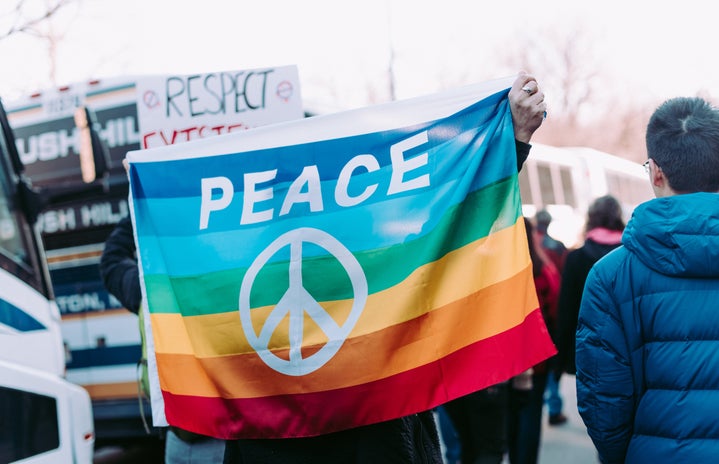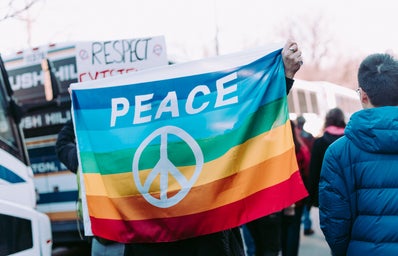Have you ever heard, “Don’t let politics get in the way of a friendship!” or, “You should be able to respect differing political views?” While these statements have merit, they are often misused to gaslight marginalized individuals into feeling as if they owe their oppressors respect. Gaslighting is a specific form of manipulation in which the abuser causes the victim to question their sanity, often preventing the victim from realizing the harmful nature of the abusers actions. In the current political climate, LGBTQ+ marriage, a woman’s right to a choice, and the lives of refugees, are all matters of political debate. Voters and politicians who support taking away your or your loved ones’ rights do not necessarily deserve your respect, let alone friendship; “a civil difference in ideologies” does not extend to varying standards of basic human rights. If human rights were not a matter of political debate, politics wouldn’t be so tied up in morality, from which stems the fallacy in this argument for “respecting beliefs”. When a stance on a “political” issue reveals contrasting moral values from the opposing stance, the issue transcends politics and becomes a variance in morals, which is almost universally considered appropriate grounds to judge a person.
Perpetrators of hateful ideologies often equate the backlash they receive for their views with intolerance. I see people on facebook post downright racist, xenophobic, and Islamophobic content and when dealing with the aftermath of their actions, they say things like “Spread love,” or “Respect other opinions.” These individuals victimize themselves because they receive hate for the “political” beliefs they express, when in reality they are simply being held accountable for advocating against the rights of marginalized groups.
Other individuals don’t necessarily spread hateful messages, but turn a blind eye to politicians’ sexist, xenophobic, or racist behavior and language, which can is a betrayal to the marginalized communities that are impacted by this mistreatment. Refusing to stand with those whose identities are constantly under attack in this country normalizes discriminatory behavior and language, which transcends politics.
Although in some instances, it is feasible to put aside political differences and get along, this is not the expectation when political divergence reflects varying morals. Hearing someone articulate why you don’t deserve certain rights is mentally taxing, let alone befriending them under the guise of political tolerance. Don’t feel guilty for unfriending or arguing with someone whose morals vary from yours; if you can’t respect someone who does
not support equal rights for all people, that is completely your prerogative. Don’t let anyone
make you feel crazy for doing what’s best for yourself.



